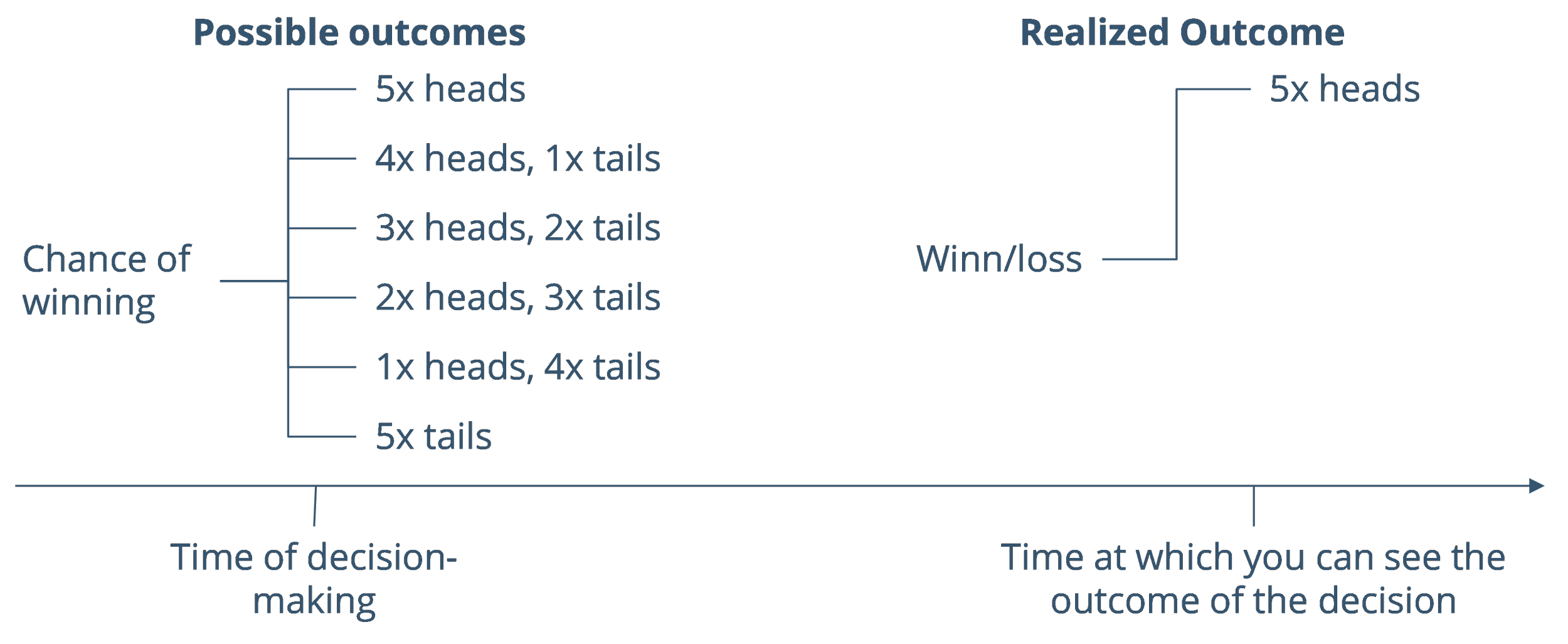Good outcome, good decision?
Why the outcome of a decision not the same as the quality of the decision – and why this matters.
Decision-making is the determining factor for success in both business and private life. One strives to achieve the best possible outcome for oneself or one’s company. Decision-making is defined as the process resulting in the selection of one alternative among several possible options. As a process it is a skill that can be trained and improved. Before one can do that, it is important to distinguish the outcome of a decision from the quality of the decision. Let us take two illustrative examples:
Of the several possible outcomes at the time of the decision, all but one will disappear over time
If there is an uncertainty about the outcome at the time of decision making, multiple outcomes are possible (and mostly not with known probability distributions as in the examples above). Once the actual outcome has been determined, it is no longer necessary to consider alternative scenarios (“what-if”).
Differentiating between the quality of the decision and the quality of the outcome is the basis for improvements
There is a common tendency for people to perceive events that have already happened as having been more predictable than they actually were at the time of decision making (hindsight bias also known as knew-it-all-along phenomenon). This can mislead a decision-maker to praise his decision-making skills in case of a positive outcome and blame bad luck for a negative outcome without having a proper reflection of the quality of the decision at the time of decision making.
A sober examination of the relationship between the quality of the decision and the result will reveal the following: even if a good decision cannot guarantee a good outcome, there is a correlation between the two, i.e. a good decision is more likely to lead to a good outcome. The relationship between the quality of a decision and its outcome can be illustrated as follows:
If you strive to improve the quality of the results of your decisions, you can only start with the quality of the decisions you are making; you are at the mercy of chance. Distinguishing between the quality of the decision and the quality of the outcome is the first important step for this.
Making decisions is a skill that can be learned and improved. If you want to know how to recognize a good decision or what to watch out for, register for the newsletter and follow our online contributions.
© Decision Advisory Group GmbH.



